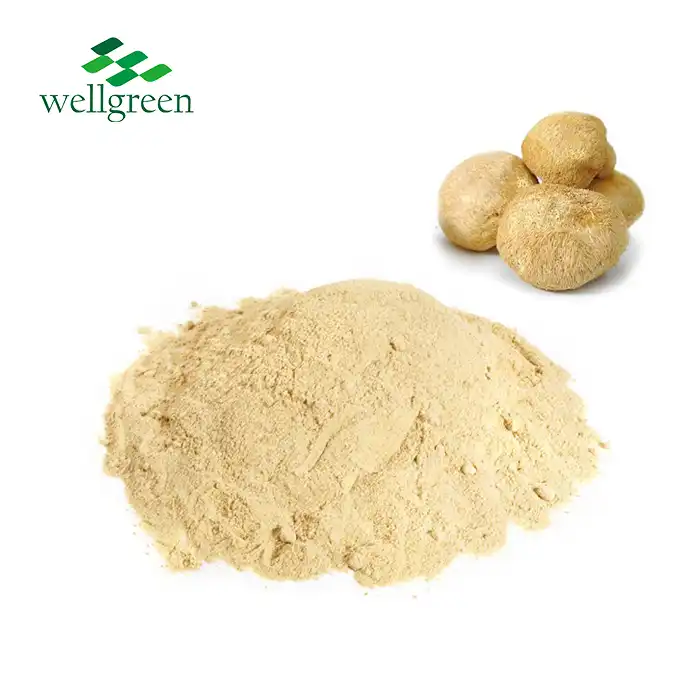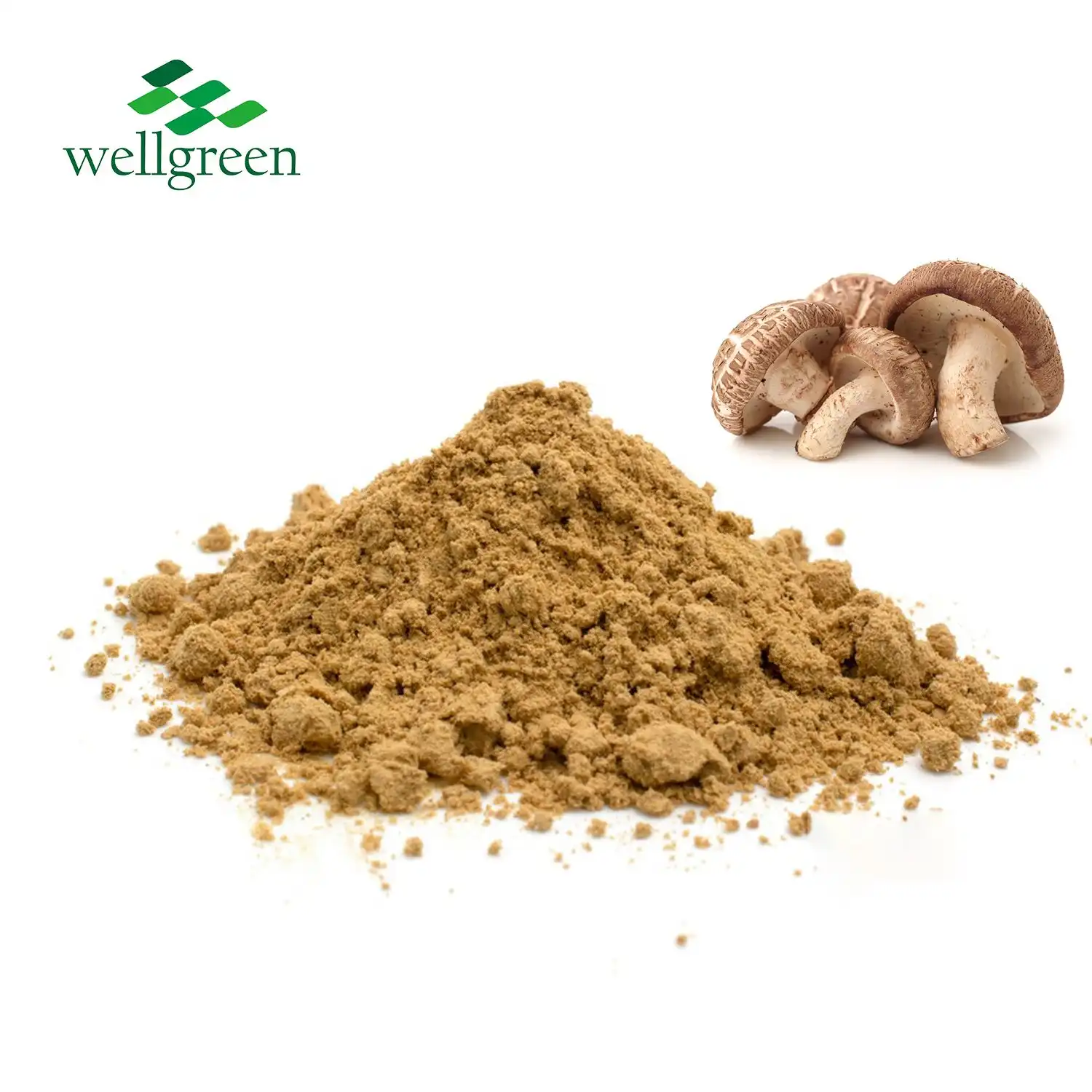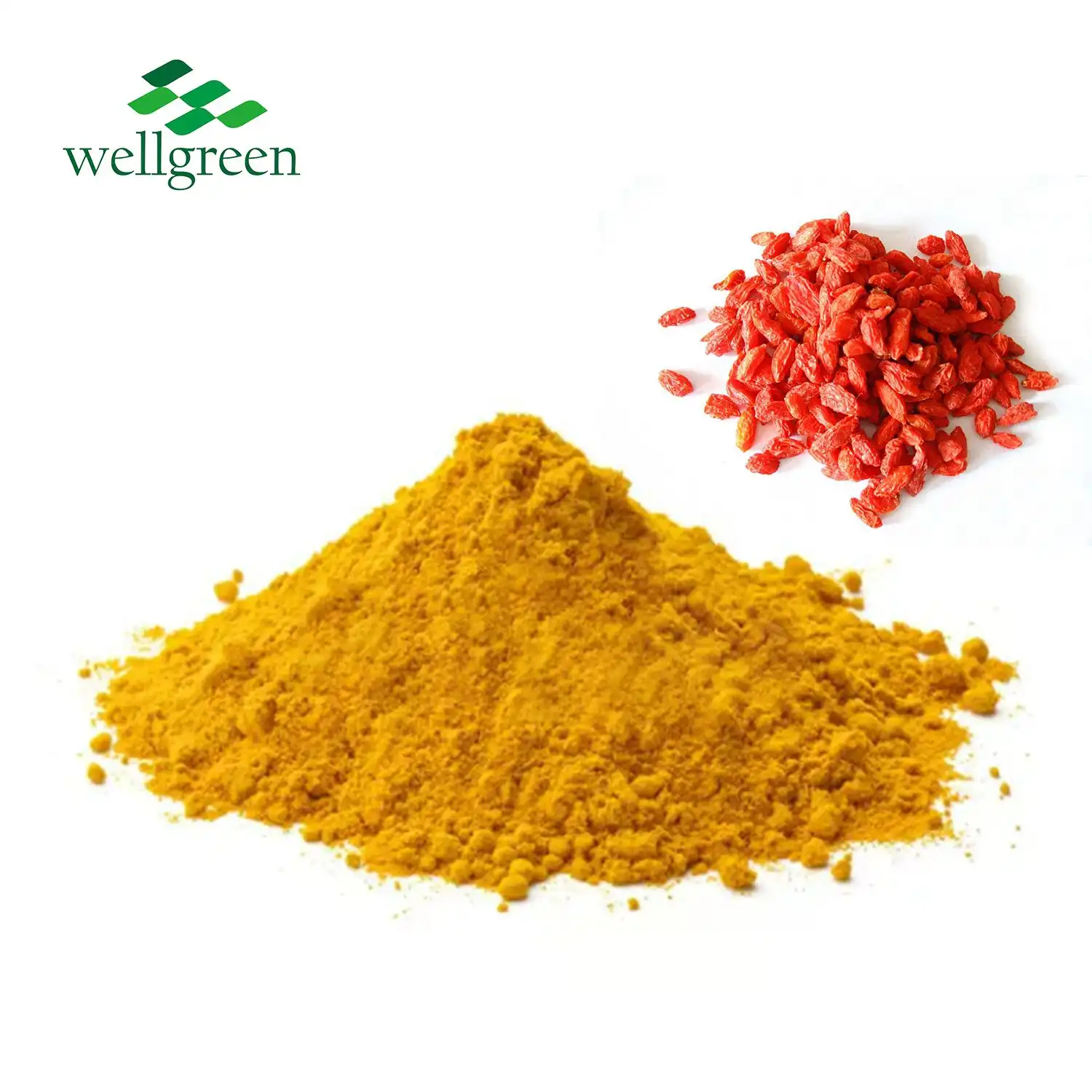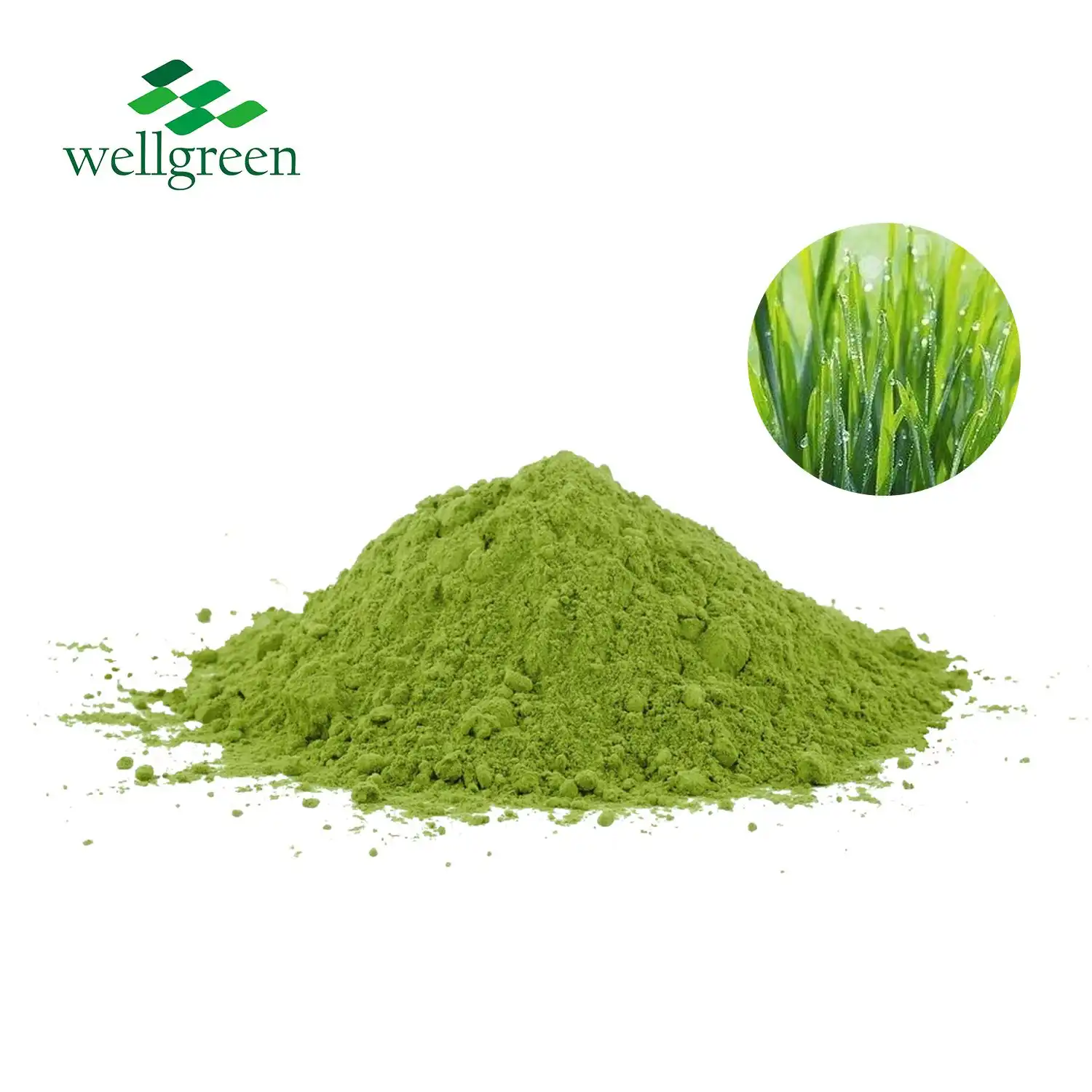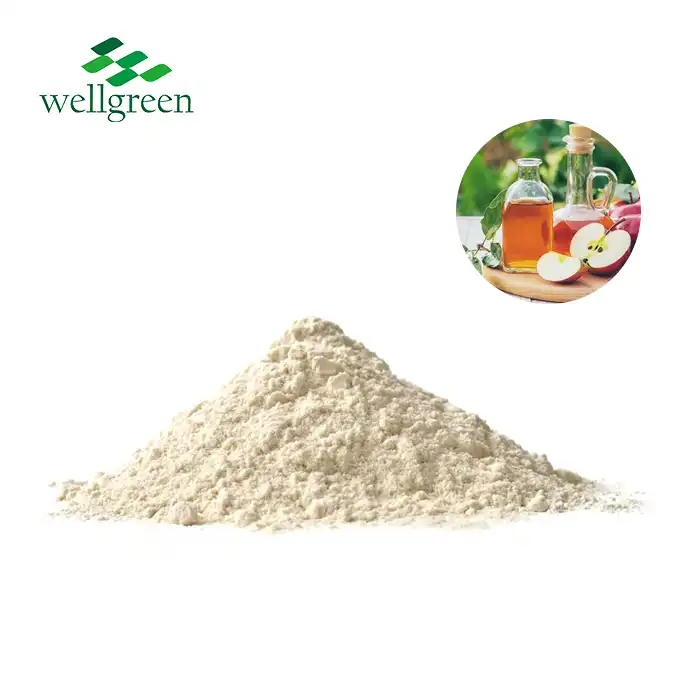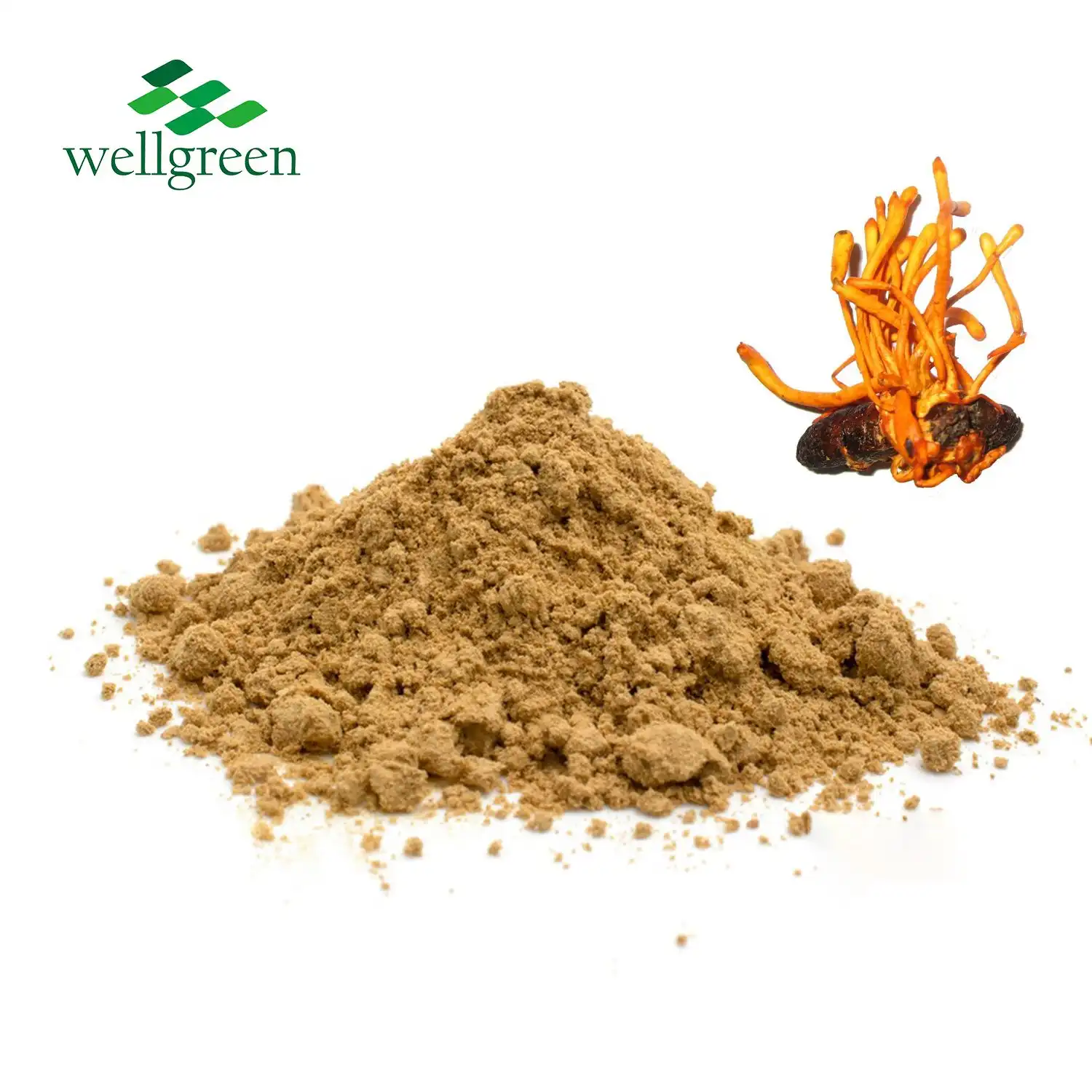Is Organic Turmeric Powder Good For You?
2025-07-17 13:59:52
Organic turmeric powder is indeed beneficial for your health, offering a myriad of advantages over its conventional counterpart. This golden spice, derived from the Curcuma longa plant, is packed with potent compounds, particularly curcumin, known for its powerful anti-inflammatory and antioxidant properties. By choosing organic turmeric powder, you're not only ensuring a purer, chemical-free product but also supporting sustainable farming practices. The absence of pesticides and synthetic fertilizers in organic cultivation methods results in a higher concentration of beneficial compounds, potentially enhancing the spice's therapeutic effects. From supporting joint health to boosting immune function and promoting digestive wellness, organic turmeric powder can be a valuable addition to your daily diet, offering a natural way to enhance your overall well-being.

Organic vs. Conventional: Key Differences Explained
Cultivation Methods
Organic turmeric powder is produced using methods that prioritize environmental sustainability and natural processes. Farmers cultivate turmeric without the use of synthetic pesticides, herbicides, or fertilizers. Instead, they rely on crop rotation, composting, and natural pest control methods to maintain soil health and manage pests. This approach not only preserves the ecosystem but also results in a purer product.
In contrast, conventional turmeric farming often involves the use of chemical inputs to boost yields and control pests. While these methods can increase production, they may leave residues in the final product and potentially harm beneficial soil organisms.
Nutrient Density
Research suggests that organic turmeric powder may have a higher nutrient density compared to its conventional counterpart. The absence of synthetic chemicals in organic farming allows plants to develop their natural defense mechanisms, often resulting in higher levels of beneficial compounds like curcuminoids, the active ingredients in turmeric.
A study published in the Journal of Applied Research on Medicinal and Aromatic Plants found that organically grown turmeric had significantly higher levels of curcumin compared to conventionally grown turmeric. This increased potency can translate to enhanced health benefits for consumers.
Environmental Impact
Choosing organic turmeric powder extends beyond personal health benefits; it also contributes to environmental conservation. Organic farming practices promote biodiversity, improve soil health, and reduce water pollution. By avoiding synthetic chemicals, organic turmeric cultivation helps maintain the delicate balance of ecosystems and supports the long-term sustainability of agriculture.
Conventional farming, while efficient in terms of yield, can lead to soil degradation, water contamination, and loss of biodiversity over time. The cumulative effect of these practices can have far-reaching consequences on the environment and human health.
3 Evidence-Based Health Benefits of Turmeric
Powerful Anti-Inflammatory Properties
One of the most well-documented benefits of turmeric powder is its potent anti-inflammatory effect. Chronic inflammation is linked to numerous health issues, including heart disease, cancer, and neurodegenerative conditions. Curcumin, the primary active compound in turmeric, has been shown to suppress many molecules known to play major roles in inflammation.
A randomized controlled trial published in the Journal of Medicinal Food found that curcumin was effective in reducing inflammation in patients with metabolic syndrome. Participants who took curcumin supplements showed significant decreases in inflammatory markers compared to those who received a placebo.
Antioxidant Boost
Turmeric powder and bulk turmeric powder are rich sources of antioxidants, compounds that protect your body from oxidative stress caused by free radicals. This oxidative damage is believed to be one of the mechanisms behind aging and many diseases. The curcuminoids in turmeric not only directly neutralize free radicals but also stimulate your body's own antioxidant enzymes.
A study in the journal Foods demonstrated that turmeric extract significantly increased the antioxidant capacity of blood plasma in healthy individuals. This enhanced antioxidant status could potentially lower the risk of various chronic diseases and support overall health.
Cognitive Function Support
Emerging research suggests that turmeric may have neuroprotective properties, potentially benefiting cognitive function and reducing the risk of neurodegenerative diseases. Curcumin has been shown to cross the blood-brain barrier, indicating its potential to directly affect brain cells and processes.
A double-blind, placebo-controlled study published in the American Journal of Geriatric Psychiatry found that curcumin supplementation improved memory and attention in non-demented adults. Participants taking curcumin showed significant improvements in memory tests and reported better mood compared to those taking a placebo.

How to Incorporate Turmeric into Your Daily Diet?
Cooking with Turmeric
Integrating organic turmeric powder into your culinary repertoire is a delicious way to reap its health benefits. This versatile spice can enhance a wide variety of dishes, from savory to sweet. Try adding a teaspoon of turmeric to your rice while cooking for a vibrant yellow hue and subtle earthy flavor. Incorporate it into soups, stews, and curries for added depth and color.
For a nutritious breakfast option, sprinkle some turmeric into your scrambled eggs or tofu scramble. You can also use it to season roasted vegetables or create a flavorful rub for meats. Remember to pair turmeric with black pepper, as the piperine in pepper enhances curcumin absorption by up to 2000%.
Turmeric Beverages
Drinking turmeric-infused beverages is another excellent way to consume this beneficial spice. The traditional Indian drink, golden milk, combines turmeric powder organic with milk (dairy or plant-based) and other spices like cinnamon and ginger. This warm, comforting beverage is perfect for winding down in the evening.
For a refreshing option, try making a turmeric lemonade by mixing fresh lemon juice, honey, water, and a pinch of turmeric powder organic. You can also add a teaspoon of turmeric powder organic to your morning smoothie for an antioxidant boost. If you prefer tea, many brands now offer turmeric tea blends, or you can simply add a pinch to your regular green or black tea.
Supplementation
While incorporating turmeric into your diet through food and beverages is beneficial, some individuals may opt for supplementation to ensure consistent intake of curcumin. Organic turmeric powder can be encapsulated for easy consumption, or you can find curcumin extracts that offer a more concentrated dose of the active compound.
When choosing a supplement, look for products that include black pepper extract or piperine to enhance absorption. It's crucial to consult with a healthcare professional before starting any new supplement regimen, especially if you have existing health conditions or are taking medications.
Conclusion
Organic turmeric powder stands out as a powerful natural supplement with a wide array of health benefits. Its anti-inflammatory and antioxidant properties, coupled with potential cognitive support, make it a valuable addition to a balanced diet. By choosing organic, you're not only benefiting from a purer product but also supporting sustainable agricultural practices. Whether you're sprinkling it on your food, sipping it in beverages, or taking it as a supplement, incorporating organic turmeric powder into your daily routine can be a simple yet effective step towards improved overall health and well-being.
Contact Us
Ready to experience the benefits of high-quality organic turmeric powder? Contact Xi'an wellgreen at wgt@allwellcn.com for premium, sustainably sourced turmeric products that can elevate your health and culinary experiences.
References
1.Prasad S, Aggarwal BB. Turmeric, the Golden Spice: From Traditional Medicine to Modern Medicine. In: Benzie IFF, Wachtel-Galor S, editors. Herbal Medicine: Biomolecular and Clinical Aspects. 2nd edition. Boca Raton (FL): CRC Press/Taylor & Francis; 2011.
2. Hewlings SJ, Kalman DS. Curcumin: A Review of Its Effects on Human Health. Foods. 2017;6(10):92.
3. Daily JW, Yang M, Park S. Efficacy of Turmeric Extracts and Curcumin for Alleviating the Symptoms of Joint Arthritis: A Systematic Review and Meta-Analysis of Randomized Clinical Trials. J Med Food. 2016;19(8):717-729.
4. Small GW, Siddarth P, Li Z, et al. Memory and Brain Amyloid and Tau Effects of a Bioavailable Form of Curcumin in Non-Demented Adults: A Double-Blind, Placebo-Controlled 18-Month Trial. Am J Geriatr Psychiatry. 2018;26(3):266-277.
5. Kunnumakkara AB, Bordoloi D, Padmavathi G, et al. Curcumin, the golden nutraceutical: multitargeting for multiple chronic diseases. Br J Pharmacol. 2017;174(11):1325-1348.
6. Shoba G, Joy D, Joseph T, Majeed M, Rajendran R, Srinivas PS. Influence of piperine on the pharmacokinetics of curcumin in animals and human volunteers. Planta Med. 1998;64(4):353-356.

